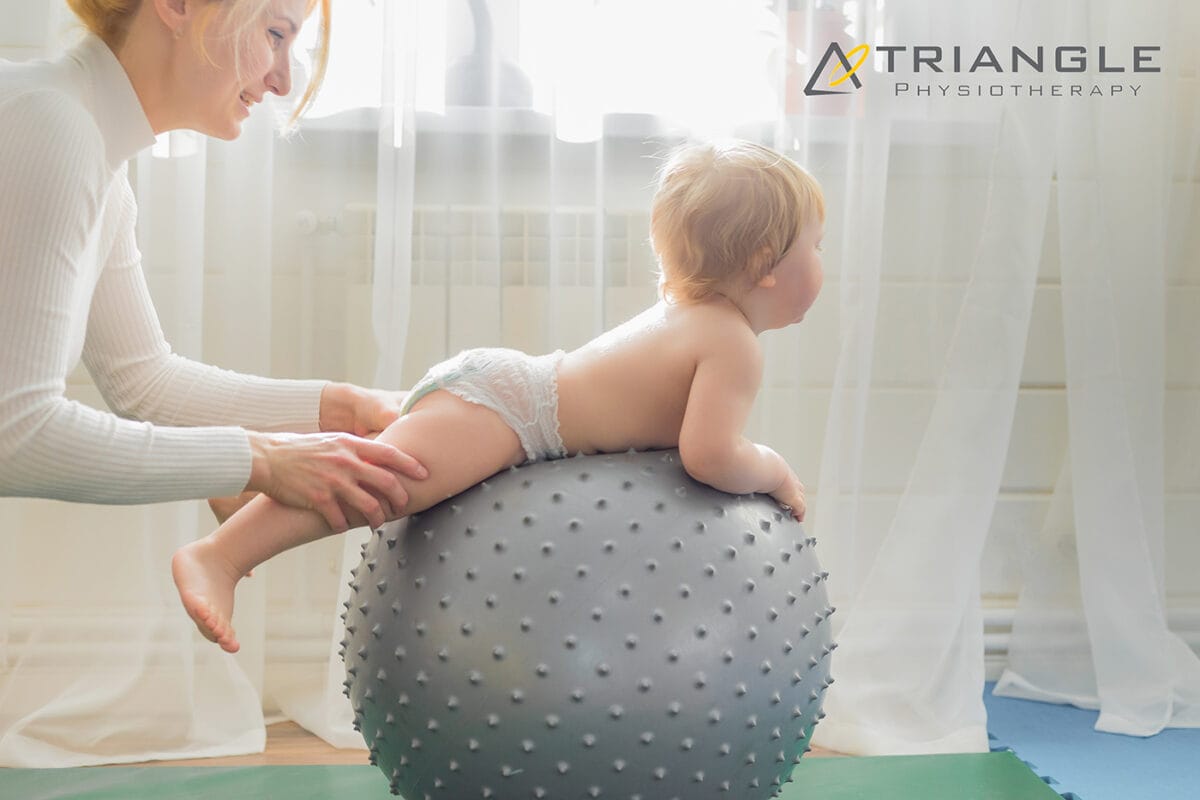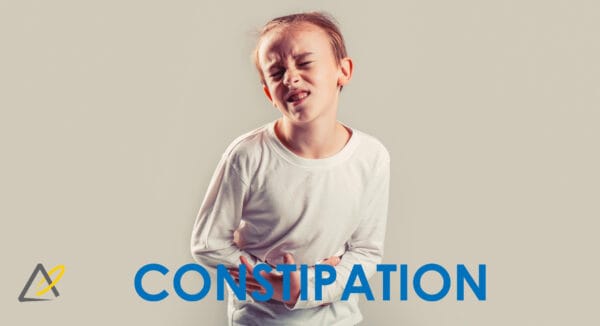As parents, ensuring the well-being and development of your child is a top priority. When a child faces physical challenges, whether due to an injury, developmental delay, or congenital condition, pediatric physiotherapy can play a crucial role in their recovery and overall health. But what exactly does pediatric physiotherapy entail, and how can it help your child? This guide will provide you with the information you need to understand this vital area of care.
Our kid’s physiotherapists at Triangle Physiotherapy Erin Mills have the expertise and experience to help children and their parents navigate these challenges.
What is Pediatric Physiotherapy?

Pediatric physiotherapy is a specialized branch of physiotherapy that focuses on assessing, diagnosing, and treating physical issues in children from birth through adolescence. It addresses a wide range of conditions, from mobility problems in infants to rehabilitation following sports injuries in teenagers. Pediatric physiotherapists work with children to improve movement, strength, coordination, and balance, helping them reach developmental milestones and recover from injuries or surgeries.
Why is it Important?
Children’s bodies are constantly growing and changing, and their needs are quite different from those of adults. Physiotherapy for children takes into account their unique developmental stages and physical capabilities. Whether it’s helping a newborn with a condition like torticollis or guiding a toddler through developmental delays, pediatric physiotherapists offer tailored interventions that focus on the individual child.
Here are some common reasons parents seek pediatric physiotherapy for their children:
- Developmental Delays: Some children may experience delays in reaching key milestones, such as sitting, walking, or speaking. Physiotherapists can help address these delays through targeted exercises and strategies to support physical development.
- Musculoskeletal Conditions: Conditions such as scoliosis (curvature of the spine), cerebral palsy, or flat feet may require physical therapy to improve mobility, strength, and posture.
- Injuries: Children are naturally active, and accidents or sports injuries can happen. Physiotherapy is essential for rehabilitation, helping your child recover safely and effectively from fractures, sprains, or strains.
- Neurological Conditions: For children with neurological conditions, such as cerebral palsy or brain injuries, pediatric physiotherapists use specific techniques to help with movement, coordination, and strength, assisting in the development of motor skills.
What Happens During Pediatric Physiotherapy Sessions?
A pediatric physiotherapy session is designed to be engaging and fun, helping your child feel comfortable while addressing their specific needs. Here’s what you can expect during a typical session:
- Initial Assessment: The physiotherapist will begin by conducting a thorough evaluation of your child’s medical history, current symptoms, and physical development. They may observe your child’s movement patterns and perform physical tests to assess strength, flexibility, coordination, and balance.
- Personalized Treatment Plan: Based on the assessment, the physiotherapist will create a customized treatment plan that includes specific exercises and interventions to help your child. The plan will focus on improving the areas that need attention and may involve activities designed to develop motor skills, increase strength, and improve mobility.
- Therapeutic Techniques: Treatment often includes exercises, stretches, and play-based activities that target your child’s specific needs. The physiotherapist may also use modalities such as massage, heat, or cold therapy, depending on the condition being treated.
- Family Involvement: Pediatric physiotherapists understand that a child’s care requires support from parents or caregivers. They will guide you on how to continue the exercises at home and offer advice on how to encourage your child’s progress outside of therapy sessions.
How Can Pediatric Physiotherapy Help Your Child?
Pediatric physiotherapy offers numerous benefits to children, including:
- Improved Mobility and Strength: Whether your child has a musculoskeletal condition, developmental delay, or injury, physiotherapy can enhance their movement abilities, making everyday tasks easier and promoting independence.
- Enhanced Coordination: Through targeted exercises, physiotherapy helps improve coordination and balance, which is essential for physical activities, sports, and even basic movements like walking or running.
- Pain Relief: If your child is experiencing pain due to an injury or condition, physiotherapy can help reduce discomfort by addressing the root cause and improving strength and mobility.
- Better Posture: Pediatric physiotherapists can help with postural issues, such as scoliosis or flat feet, improving alignment and preventing future complications.
- Increased Confidence: As children progress in their physical development and reach milestones, they often gain greater confidence in their abilities, which can positively impact other areas of their lives.
Kids physiotherapy in Mississauga is an essential service that can support your child’s physical development, recovery, and overall well-being. Whether your child is dealing with an injury, a developmental delay, or a specific condition, pediatric physiotherapists provide individualized care to help them reach their fullest potential. If you believe your child may benefit from physiotherapy, consult a pediatric physiotherapist who can assess their needs and develop a tailored treatment plan. By doing so, you’ll be supporting their physical growth and ensuring they thrive in every stage of life.
Get in touch with us at Triangle Physiotherapy Erin Mills to see how we can help you and your child!
Did you know children can benefit from pelvic physiotherapy too?
Most children are dry at night by school age. Approximately, 30% of children wet the bed at 4 ½ years of age. Fecal incontinence is also common in children. If a child has regular soiling or poo accidents after the age of 4 they should be assessed.
There is no cause to worry. Pelvic Health issues in children can be resolved with the help of a trained pelvic health physiotherapist at Triangle Physiotherapy.
Common conditions experienced by children include:
Constipation: infrequent bowel movements, frequent movements with pain or difficulty
Incontinence: inability to maintain bowel or bladder function. Could be inability to make it to the bathroom in time or leakage with giggles and coughing
Bed Wetting (Enuresis): leaking urine through the night while sleeping.
Voiding issues (eg. Dysfunctional voiding & postponement): inappropriately engaging pelvic floor muscles during voiding or delaying going to the bathroom, sometimes as a result of fear or pain.
Did you know 85% of children have bed wetting or fecal incontinence because of constipation?

If your child is 5 or older and experiencing any of the above symptoms pediatric Pelvic Floor Physiotherapy can help them get back to being kids, and relieve familial stress!
Our trained therapists create a personalized treatment plan with parents and children to better target your concerns and furthermore improve your child’s overall quality of life. Treatment is always in a way that is fun and engaging for your young one.
What does a pelvic floor assessment entail?
Your physical therapist will start by taking a detailed child developmental and family history. We may also ask you to complete a bladder diary to better track your child’s voiding patterns and perform a functional assessment of their breathing. Thereafter, the physiotherapist will do a visual assessment for which the child need not undress. Sometimes, the physiotherapist will use externally placed sensors to assess the functioning of the pelvic floor muscles.
Note: An internal assessment is not performed.
What does the pelvic floor treatment entail?
- Education dietary foods/irritants, habit training, digestion, pelvic floor anatomy
- Biofeedback machines using Bluetooth to keep children engaged playing games with the aid of their pelvic floor muscles.
- Electrical Stimulation
- Toilet training
- Massage
Which locations of Triangle Physiotherapy offer Pediatric Pelvic Health in Toronto?
Pediatric Pelvic Floor Physiotherapy is offered at Triangle Physiotherapy North York, Triangle Physiotherapy Mississauga and Triangle Physiotherapy Lawrence Park.
Click here to book an appointment for your child.
Pediatric pelvic floor physiotherapy is essential for addressing bladder and bowel control issues in children. Triangle Physiotherapy offers specialized services across the GTA, including Physiotherapy in Etobicoke, Oakville, North York, Toronto, Lawrence Park, Queens Quay, Erin Mills, Mississauga, and Liberty Village. Our experienced team provides personalized care to help young patients overcome these challenges and improve their quality of life.



